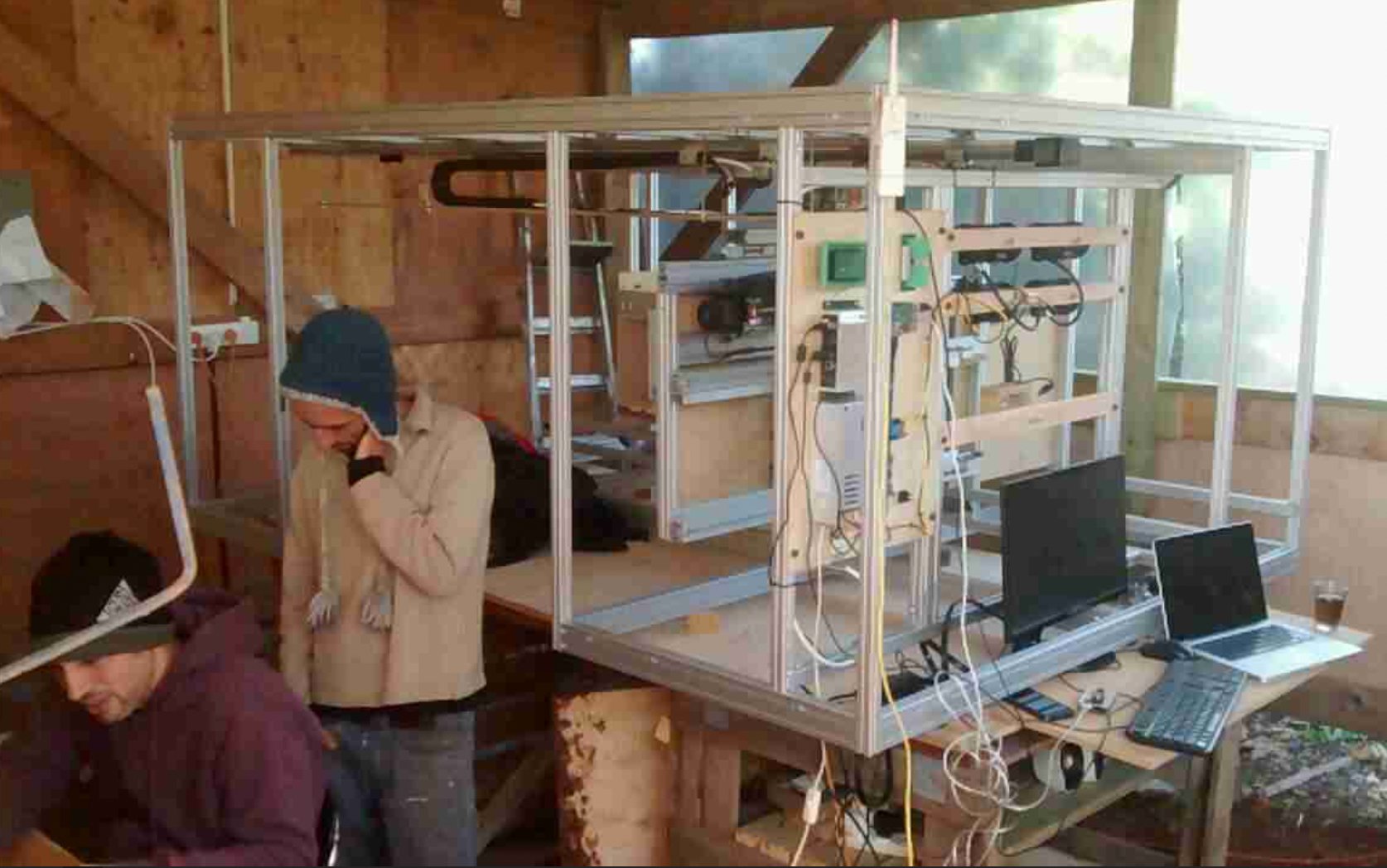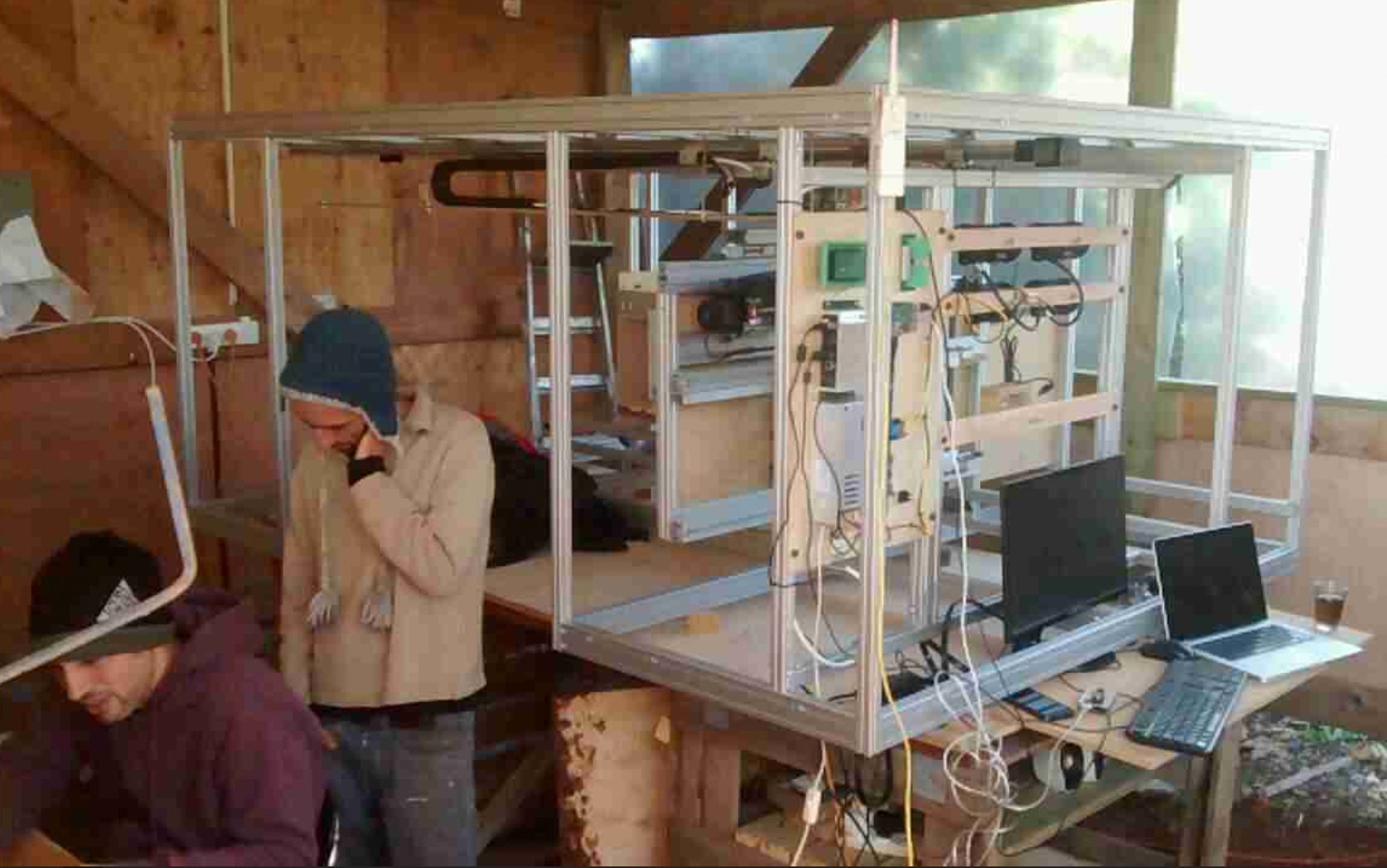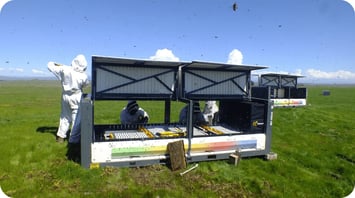The Eureka Moment
About six years ago, I was working as a commercial beekeeper, and one day I was tending the hives. I would pull out a few of the frames of bees in order to assess the hive's health: “Do they need feeding?”, "How is the Queen doing?", and "Do I need to treat for pests?" Then I would take immediate action.
Suddenly, I had a realization: "A computer can do my job better than me! "What if I could put a camera in every hive? I would be able to inspect them remotely without having to go out into the field!”
As excited as I was about this new idea, I started to have a suspicion that although it was cool, it wasn’t addressing my real problems as a commercial beekeeper.
That led me to speak with other commercial beekeepers. I knew sensors for remote inspection of hives were widely available at the time, so I asked about that technology. Across the board, I was told that they weren’t using it. I asked them, "Why not?" to which they replied, “What for?” They didn’t find the solution helpful because the real pain for commercial beekeepers is getting out to bee yards that are spread out over huge distances. Even if the technology worked, they would still have to go out to fix all of the problems that the sensors identified. And in that case, the advantage of remote inspection only had marginal value.

Members of the founding team work from an unheated shed with a dirt floor on an early prototype of the BeeHome
Building a Team, Understanding the Problem
I had been busy. By this point, I had already brought together a team of co-founders including Boaz Petersil, Hallel Schreier, Yossi Sorin, and Saar Safra. Imagine the confusion: we felt we had a fantastic idea, something that had never been done, something that had the potential to change the world, but the market was telling us there was little value to it. As a beekeeper, I had a good understanding of the challenges that bees were facing. I knew that as an industry, we were losing about 30-40% of our bees every year due to four main reasons: Parasites, Pathogens, Pesticides and Poor Nutrition. However, it had never occurred to me before that I didn’t have a deep understanding why we beekeepers weren’t doing a better job of keeping our bees alive. So we had to be brutally honest with ourselves and accept the fact that maybe our idea was not as good as we thought it was. We set out to identify the three core challenges of beekeepers, which as we would learn, are Distance, Time, and Expertise.
Distance
Beekeepers typically keep hives in groups of 50-200 per yard. They spread out yards to ensure that bees have adequate forage. Commercial beekeepers might have hundreds of yards spanning huge areas, often across a few different states. As a result, beekeepers spend up to 60 percent of their time in transit, going to and from their yards, as opposed to actually taking care of their bees.
Time
Because of the transit time required to get between bee yards, compounded by the highly-manual nature of the work , beekeepers frequently can only get to their yards once every couple of weeks. If you are only visiting your hive one out of every 14 days, it means that you are either too early or too late, most of the time.
Expertise
Commercial beekeepers are often born into the profession. Sometimes the family has been in the business for three, four, or even five generations. These beekeepers have a deep wealth of knowledge and expertise. Unfortunately for the bees, however, in commercial beekeeping today, hives are increasingly tended to by unskilled labor. To summarize, bees are facing four deadly environmental challenges that are decimating their populations year after year, while we stand by, visiting most of our hives too late with an inexperienced workforce. It’s no wonder that beekeepers are finding it hard to keep their bees alive.
An “Aha” Moment
Suddenly it was clear, what we needed was not remote inspection, it was remote beekeeping: “What if we could not only inspect the hives remotely, what if we could actually address the bees' needs remotely? In real time. Identify a parasitic infestation and treat it in real time before it becomes detrimental. Identify a starving hive that is low on its stores and feed it before it’s too late.” Everything suddenly made sense, and we were on the right track!


.jpg?width=355&height=199&name=DSC00415%20(1).jpg)


.png?width=355&height=199&name=Copy%20of%20The%20Evolution%20of%20Pollination%20(1).png)
Co-Founder of Beewise
Leave comment